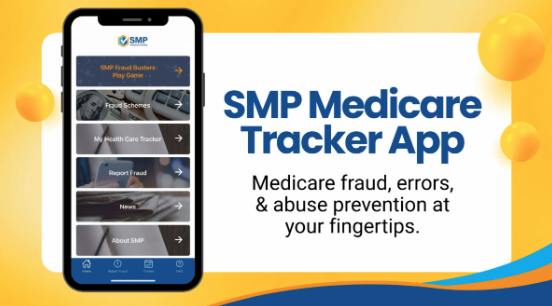Free SMP Medicare Tracker App Available

The new My Health Care Tracker App will help you track your appointments, verify statements, and prevent Medicare fraud, errors, and abuse. Download today and stay empowered:
https://smpresource.org/app/
Contact your Local SMP
- Allegany County
301-783-1710 -
Anne Arundel County
410-222-4257 -
Baltimore City
410-396-2273 -
Baltimore County
410-887-2059 -
Calvert County
410-535-4606 -
Caroline County
410-479-2535 -
Carroll County
410-386-3800 -
Cecil County
410-996-8174 -
Charles County
301-934-9305 -
Dorchester County
410-376-3662 -
Frederick County
301-600-1234 -
Garrett County
301-334-9431 -
Harford County
410-638-3025 -
Howard County
410-313-7392 -
Kent County
410-778-2564 -
Montgomery County
301-255-4250 -
Prince George’s County
301-265-8471 -
Queen Anne’s County
410-758-0848 -
Somerset County
410-742-0505 -
St. Mary’s County
301-475-4200 ext 1064
-
Talbot County
410-822-2869 ext 231 -
Washington County
301-790-0275 -
Wicomico County
410-742-0505 -
Worcester County
410-742-0505
Volunteer for SMP
Sign up to help protect Medicare beneficiaries from fraud in your community.
